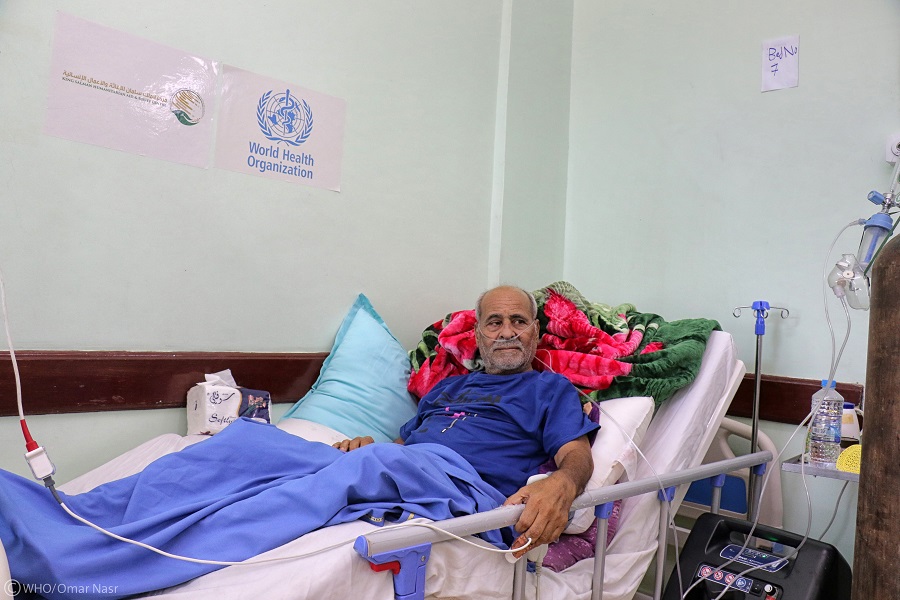
5 August 2021 – Two months ago, Ali Mothana was battling for his life in a COVID-19 isolation unit in Al Sadakah hospital in Aden after being infected with the COVID-19 virus.
“When I was rushed to the hospital, I was suffering from unbearable pain, and my condition was extremely difficult,” recounted Ali, 64. “I thought that it was the end, and that I would not be able to see my grandchildren again.”
COVID-19 has exacted a heavy toll on Yemen, a country that also faces the world’s most complex and dire humanitarian crisis. Like countless other Yemenis, Ali was not believing on how contagious and deadly COVID-19 could be – until it nearly killed him.
“I never ever thought that I would be diagnosed with COVID19. We were in complete denial of the existence of this pandemic, and ignored all precautionary measures.”
The number of confirmed cases of COVID-19 in Yemen is 7016 and 1374 deaths. Still, these numbers do not present an accurate picture of the actual number of cases, due primarily to their under-reporting in Yemen.
Fortunately for Ali, he sought treatment at the WHO-supported intensive care unit in Al Sadakah hospital in Aden. “When I was admitted to the hospital my case was severe and I stayed in the intensive care unit for a long time. I am very fortunate to have received the care I needed. I would have never expected to receive such care – it saved my life”.
Partnering to save lives
WHO is partnering with the King Salman Centre for Humanitarian Aid and Relief in the fight against COVID-19 in Yemen. Through this partnership, and in coordination with local authorities, WHO has been enabling rapid detection and response to COVID-19 cases through the Emergency Operations Centres, which represent a platform for an integrated, multisectoral coordination system at central and governorate levels across the country.
“I have finally passed the critical stage and started recovery,” Ali said. “I can never thank enough the white army (health workers) who are putting their lives at risk to save ours. Now I can continue my life with my grandchildren and teach them to be role models – like these health workers who saved my life”.








